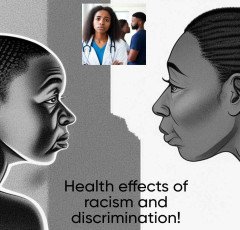
Health Effects Of Racism And Discrimination

A person's mental and physical health can be seriously harmed by racism and discrimination. They may affect your health in the following ways:
Mental health:
Psychological suffering, such as anxiety, sadness, and post-traumatic stress disorder (PTSD), can be brought on by racism and prejudice. Numerous symptoms, including difficulty sleeping, difficulty concentrating, and mood fluctuations, may result from this.
Physical well-being:
Racism and discrimination can result in long-term stress, which can aggravate a number of physical health issues, such as hypertension, heart disease, and diabetes. Chronic stress can impair immune function and increase susceptibility to sickness.
Access to healthcare and its outcomes:
Discrimination and racism can affect both. People who encounter racism and discrimination may put off getting medical care out of concern that they will be treated unfairly or favorably by healthcare professionals. They might also get poorer care as a result of prejudice or stereotypes on the part of medical professionals.
Interpersonal relationships can be harmed by racism and discrimination, which can result in emotions of distrust, loneliness, and social exclusion.
possibilities in the economy and in education:
Racism and discrimination can restrict possibilities in the economy and in education, which can have a negative impact on long-term health.
To be aware that these negative impacts can build up over time, meaning that the longer someone is exposed to racism and prejudice, the more negative consequences it will have on their health.
Environmental factors:
Racism and prejudice can have an impact on people's places of residence, employment, and recreation. People from racial and ethnic minority groups, for instance, are more likely to reside in locations with poor air quality, subpar housing, and restricted access to healthy food alternatives, all of which can worsen health issues like obesity, asthma, and cardiovascular disease.
Trauma:
Events involving racism and prejudice, such as hate crimes, racial profiling, and police brutality, can also result in traumatic experiences. A person's mental and physical health may be affected by these traumatic events for a long time, increasing their chance of developing PTSD, anxiety, and depression, among other conditions.
Impact on future generations:
Racism and prejudice may affect future generations' health. Epigenetic modifications can be passed down from past generations' trauma, increasing the chance of health issues in succeeding generations.
Racism and discrimination have a wide range of negative health repercussions. To address these concerns and build more just and equitable societies where everyone can thrive, it is crucial for individuals, communities, and policymakers to collaborate.
Coping strategies:
People who suffer racism and prejudice may develop unhealthy coping strategies, such as abusing drugs or alcohol, overeating, or taking risks, which can further deteriorate their physical and mental health.
Racism and discrimination can cause emotions of poor self-esteem and humiliation, which can have an adverse effect on a person's mental and physical health. Social exclusion, which has a detrimental effect on a person's sense of purpose and belonging, can result from stigmatization as well.
Health outcomes for mothers and their children can be significantly impacted by racism and discrimination.
Preterm birth, low birth weight, and infant death are among the issues that are more likely to affect pregnant women who suffer racism and prejudice. The prevalence of chronic illnesses like obesity and asthma may be higher in kids who suffer racism and discrimination.
Racism and prejudice can seriously harm a person's physical and emotional health as well as their ability to obtain medical care, education, and employment possibilities. To address these concerns and advance health equity for everyone, individuals, communities, and policymakers must act.
Racial differences in health outcomes can also be attributed to racism and discrimination.
When compared to white people, people from racial and ethnic minority groups are more likely to have poor health outcomes, such as greater rates of chronic diseases, higher death rates, and shorter life expectancies. These differences are brought about by systemic racism and structural injustices that have persisted over time.
The socioeconomic determinants of health, such as poverty, education, and housing, can be impacted by racism and prejudice. People who encounter racism and prejudice, for instance, may have less access to well-paying jobs, high-quality education opportunities, and safe and reasonably priced housing, all of which can affect their health outcomes.
Racism and discrimination can have an effect on one's mental health. Due to stigma or mistrust of mental health professionals, many persons who encounter racism and discrimination may not seek mental health services. Additionally, mental health practitioners might not have the necessary training to address racism and discrimination-related concerns, which could result in inadequate treatment for those who are affected.
Intersectionality: It's critical to recognize that oppressions like sexism, homophobia, and ableism connect with racism and discrimination, which do not exist in a vacuum. For people who encounter many forms of prejudice, this can have complex and compounding health repercussions.
Discrimination and racism have profound consequences on health outcomes and significantly widen health disparities.
It's crucial to address these problems through legislative adjustments, community-based programs, and individual initiatives to advance social justice and health fairness.
The COVID-19 epidemic has brought attention to the negative effects of racism and discrimination on people's health. Compared to white people, people from racial and ethnic minority groups have had disproportionately high rates of infection, hospitalization, and death from COVID-19. Numerous variables, such as structural disparities, limited access to healthcare, and a higher prevalence of underlying health issues, are to blame for this.
Historical trauma: The effects of historical trauma, such as those brought on by slavery, colonialism, and genocide, can also have an effect on people's physical and mental well-being. Intergenerational consequences of historical trauma on health can include increased prevalence of chronic diseases and mental health issues.
Resilience and healing: In order to recover from the effects of racism and discrimination, it is important to address both the structural and individual levels. This entails encouraging cultural humility in healthcare professionals, addressing societal determinants of health, and offering community-level tools for recovery and resilience.
The consequences of racism and prejudice on one's health are extensive and complicated.
It's crucial to address these problems on multiple levels, including through governmental adjustments, community-based interventions, and private initiatives to support recovery and resilience. Together, we can address these problems and build more just and equal society where everyone can prosper.
Access to and quality of medical care are both impacted by racism and discrimination. Due to systematic racism and discrimination in the healthcare system, including inadequate representation and cultural competency among healthcare practitioners, people from racial and ethnic minority groups may have hurdles to getting healthcare. For some people, this may result in differences in the standard of care and health outcomes.
Implicit bias:
Health disparities can also be a result of implicit bias, which is the term for unintentional attitudes and preconceptions that affect our behaviors and decisions. Implicit biases held by healthcare professionals may affect how they engage with patients from various racial and ethnic origins, resulting in unequal treatment and poorer health results.
Medical mistrust:
For those who encounter racism and discrimination, medical mistrust—or a lack of faith in the healthcare system—is a substantial obstacle to healthcare access and quality. Medical mistrust may be brought on by past and present discrimination against racial and ethnic minorities in the healthcare system.
Cultural hurdles:
For people who encounter racism and prejudice, cultural barriers, such as language and communication barriers, can affect healthcare access and quality. This may result in misunderstandings and improper communication between patients and healthcare professionals, which may compromise the standard of care and health outcomes.
Health literacy:
Racism and prejudice have an effect on one's capacity to comprehend and use health information. Due to institutional impediments to education and healthcare access, people from racial and ethnic minority groups may have inferior health literacy, which can have a detrimental impact on their health outcomes.
The availability, effectiveness, and consequences of healthcare are significantly impacted by racism and discrimination. Policies and initiatives that encourage cultural humility, address unconscious prejudices, and improve healthcare access and quality for all people, regardless of race or ethnicity, are necessary to solve these problems.
Environmental racism is the term used to describe how communities of color are disproportionately affected by environmental risks and pollution. Residents in these neighborhoods may suffer from cancer and respiratory diseases as a result, among other harmful health impacts.
Food insecurity is the lack of access to enough food for a healthy and active life.
Racism and discrimination can also be factors in this problem. Due to structural impediments to access to healthcare, employment, and education, people from racial and ethnic minority groups are more likely to face food insecurity.
Racial discrimination and racism can have an impact on maternal and newborn mortality rates.
Compared to white women, black women have a three to four times higher risk of dying from pregnancy-related problems, and their babies are more likely to be born preterm or with low birth weight. These discrepancies are a result of social determinants of health like poverty and limited access, as well as institutionalized racism and prejudice in the healthcare system.
Police brutality:
The outcomes for individuals's physical and mental health can be significantly impacted by police brutality and abuse of people of color. Police violence can leave victims with physical wounds, trauma, and chronic stress, all of which can have a long-term harmful influence on their health.
Resilience and resistance:
Many people and communities have displayed resilience and resistance in the face of these difficulties, despite the detrimental effects of racism and discrimination on health outcomes. This includes promoting legislative reforms, creating networks and resources for the community, and participating in cultural behaviors that encourage recovery and wellbeing.
Addressing the effects of racism and discrimination on health outcomes requires a focus on health equality, which is the equitable distribution of resources and opportunity for good health. This necessitates tackling structural injustices and advancing social fairness throughout society.
Racism and discrimination have a wide range of negative health impacts that affect many facets of health and wellbeing.
A holistic and integrative strategy that addresses systemic injustices, advances social justice, and elevates the voices and experiences of impacted groups is crucial in addressing these problems.
The concept of intersectionality describes how various types of oppression and discrimination interact to produce individualized experiences of marginalization and discrimination. People who are subjected to racism and discrimination, for instance, may also be discriminated against because of their gender, sexual orientation, or level of handicap. The effects of these interrelated forms of prejudice on health outcomes may be compounded.
Mental health:
Racism and discrimination can have a serious negative effect on one's mental state, leading to higher rates of depression, anxiety, and post-traumatic stress disorder (PTSD), among other effects. Chronic stress and trauma brought on by discrimination experiences, as well as institutional inequalities that restrict access to mental health services and support, are the causes of these effects.
Social determinants of health:
Racism and discrimination have an effect on social determinants of health, including access to employment, education, and housing. People from racial and ethnic minority groups are more likely to live in poverty and have limited access to things that help them stay healthy, like nutritious food and secure housing.
Trauma across generations:
The effects of racism and prejudice can be carried down through generations, which can result in trauma across generations and poor health outcomes. This can involve passing on traumatic experiences, chronic stress, and health inequities from one generation to the following.
Solutions and interventions:
There are numerous solutions and interventions needed to address the effects of racism and prejudice on health outcomes. This involves individual efforts to address implicit biases and foster cultural humility, community-based therapies that foster healing and resilience, and governmental measures that promote health equity and address systemic disparities.
Racism and discrimination have extensive and widespread negative health repercussions that affect all facets of health and wellbeing. A thorough and intersectional strategy that addresses systemic injustices, advances social justice, and elevates the voices and experiences of impacted groups is necessary to address these concerns. Together, we can address these problems and build more just and equal society where everyone can prosper.
Access to healthcare services:
Discrimination and racism can affect both the availability of healthcare services and the standard of care. Minority members are more likely to encounter transportation, language, and insurance-related obstacles to getting access to healthcare. Furthermore, it's possible that healthcare professionals have implicit prejudices that affect the standard of care they give to patients from these areas.
Medical mistrust:
Another significant issue that affects the health outcomes of communities of color is medical mistrust. This is because communities of color lack faith in the healthcare system as a result of a lengthy history of medical experimentation and mistreatment of these groups, including the Tuskegee syphilis experiment.
Health disparities:
Racism and discrimination have an impact on health disparities, which are inequalities in health outcomes depending on social, economic, and environmental factors. Compared to white people, people from racial and ethnic minority groups had higher death rates and rates of chronic diseases including diabetes and heart disease.
Cultural competence:
Addressing the effects of racism and prejudice on healthcare access and quality of care requires healthcare personnel to be able to comprehend and cater to the cultural and linguistic demands of their patients.
In order to address the effects of racism and discrimination on health outcomes, advocacy and activism are crucial instruments. This entails engaging in grassroots activism to elevate the views and experiences of impacted communities as well as promoting legislative reforms that promote health equity and address systematic disparities.
Access to healthcare, the standard of care, and health disparities are only a few of the numerous effects of racism and prejudice on health outcomes. A comprehensive and intersectional strategy that incorporates legislative adjustments, community-based interventions, and healthcare professionals that are culturally competent is needed to address these concerns. Furthermore, action and advocacy are crucial strategies for tackling these problems and advancing social justice in all facets of society.
Environmental racism and discrimination are terms used to describe how communities of color and low-income communities are disproportionately affected by environmental risks including air and water pollution. Negative effects on health, including respiratory and cardiovascular conditions as well as other health issues, may result from this.
Occupational health:
Racism and discrimination can have an impact on the results of occupational health, especially for those who work in dangerous or low-paying jobs. These workers frequently encounter higher concentrations of environmental contaminants and other dangers, which can have a severe impact on their health by increasing their risk of developing cancer, respiratory conditions, and work-related injuries.
Criminal justice:
Racism and prejudice have an effect on the criminal justice system as well, with communities of color more likely to suffer disproportionately from mass incarceration and other types of criminalization. Negative health effects may result from this, such as a rise in the prevalence of mental illness, substance use disorders, and other conditions.
Diversity in the healthcare workforce:
Addressing the effects of racism and discrimination on healthcare access and quality of care requires taking steps to increase diversity within the healthcare workforce. This entails boosting cultural competence among healthcare professionals and diversifying the workforce's representation of people from racial and ethnic minorities.
Research and data gathering:
For these concerns to be identified and addressed, proper data collection on the effects of racism and prejudice on health outcomes is crucial. To better understand health inequalities and other detrimental health consequences, this involves gathering information on the socioeconomic determinants of health, such as income and education, as well as information on race and ethnicity.
All facets of society, including healthcare access, occupational health, criminal justice, and environmental justice, are impacted by racism and prejudice, which have a persistent and wide-ranging impact on health outcomes. A comprehensive and intersectional strategy that incorporates policy modifications, community-based initiatives, and cultural sensitivity among healthcare professionals is necessary to address these concerns. In order to advance health equity and social justice in all spheres of society, it is also imperative to broaden the diversity of the healthcare staff and gather reliable statistics.
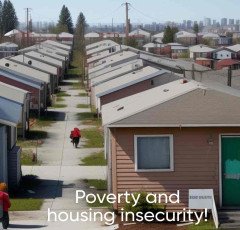


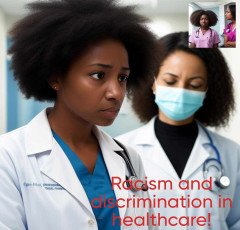


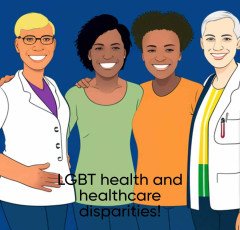
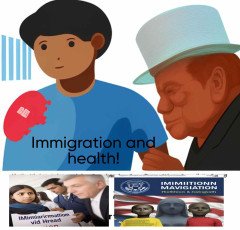
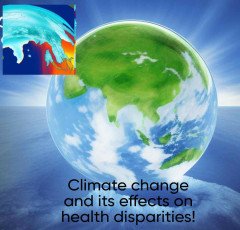






 SOFAS
SOFAS  Best Home Appliances
Best Home Appliances  NordVPN
NordVPN  Hot Bags For Pain Relief
Hot Bags For Pain Relief  BEST SELLER TOP10
BEST SELLER TOP10  All Wireless Products
All Wireless Products  Hello Theme
Hello Theme  Top Rated From Amazon
Top Rated From Amazon  Best Sellers On Amazon
Best Sellers On Amazon  Unlimited access to classes on illustration, photography, design, film, music
Unlimited access to classes on illustration, photography, design, film, music  Online Marketing
Online Marketing  ASPINAL LONDON
ASPINAL LONDON  ELECTRONIC ACCESSORIES
ELECTRONIC ACCESSORIES  One World Collection
One World Collection  Sennheiser
Sennheiser  Only For The United States
Only For The United States  Men Clothing
Men Clothing  NordLocker
NordLocker  Women Fashion
Women Fashion  Artificial Intelligence
Artificial Intelligence  Online Technology Classes
Online Technology Classes  1150+Trendy kids coloring pages Bundle
1150+Trendy kids coloring pages Bundle  Acer Laptop
Acer Laptop  Smart Doorbell
Smart Doorbell  TitTok Revolution
TitTok Revolution  Favorite Company (Cuelinks)
Favorite Company (Cuelinks)  NordPass
NordPass  ASUS Laptop
ASUS Laptop  Graphics & Design
Graphics & Design  RPM 3.0
RPM 3.0  Best Selling Books
Best Selling Books  The Click Engine
The Click Engine  SEO Checklist
SEO Checklist  Unreal Engine 5 For Beginners Learn The Basics Of Virtual Production
Unreal Engine 5 For Beginners Learn The Basics Of Virtual Production  Creative Brief For Video Shoot
Creative Brief For Video Shoot  Amazon Best Selling Products
Amazon Best Selling Products  Best Robotic Vacuum Cleaners
Best Robotic Vacuum Cleaners  The Secret Email System
The Secret Email System 
















